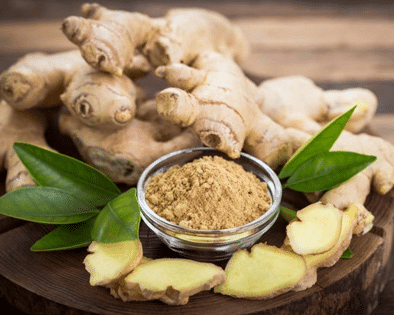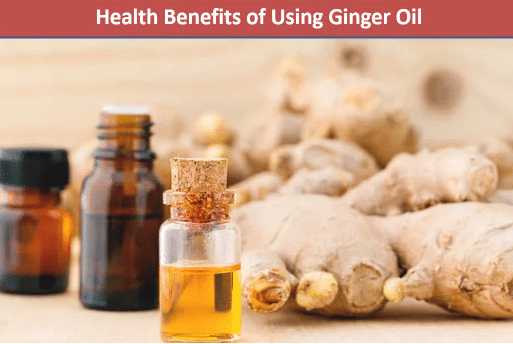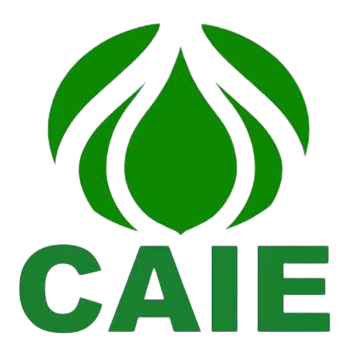Ginger, a spice revered for its distinctive flavor and powerful health benefits, is far more than just a kitchen staple. Its versatility extends into various industries, making it a valuable commodity in the global market. This blog delves into the multifaceted industrial uses of ginger, highlighting its impact and applications across different sectors.
1. Ginger in the Food and Beverage Industry
The food and beverage industry is perhaps the most prominent sector where ginger finds extensive use. Its unique flavor profile and health benefits make it an indispensable ingredient.

Culinary Uses
Ginger is a key ingredient in many culinary traditions across the globe. It is used in:
- Cooking and Baking: Fresh, dried, or powdered ginger is used in a variety of dishes, from savory curries and stir-fries to sweet desserts like gingerbread and pumpkin pie.
- Flavoring Agents: Ginger extracts and oils are used to flavor candies, chocolates, baked goods, and even savory snacks, adding a warm, slightly spicy note.
- Beverages: Ginger is a popular flavor in teas, sodas, and alcoholic beverages like ginger beer and ginger ale. Its refreshing zing adds complexity and depth to these drinks.
Food Preservation
Ginger’s antimicrobial properties make it an effective natural preservative. It is used in:
- Extended Shelf Life: Adding ginger to certain foods can help extend their shelf life by inhibiting microbial growth. This is particularly useful in preserving sauces, marinades, and pickles.
- Pickling: Ginger is commonly used in pickling processes, enhancing both flavor and preservation. Pickled ginger, or gari, is a staple accompaniment to sushi, cleansing the palate between bites.
2. Ginger in the Pharmaceutical Industry
Ginger’s medicinal properties have been recognized for centuries, making it a valuable component in the pharmaceutical industry.

Medicinal Uses
Ginger is used in the formulation of various medicinal products:
- Digestive Health: Ginger is widely used to treat digestive issues such as nausea, indigestion, and motion sickness. Its ability to calm the stomach and reduce nausea makes it a popular choice for pregnant women and individuals undergoing chemotherapy.
- Anti-Inflammatory: Its anti-inflammatory properties make it useful in treating conditions like arthritis, muscle pain, and joint pain. Ginger supplements are often recommended to help manage these conditions naturally.
- Cold and Flu Relief: Ginger is a common ingredient in cold and flu remedies due to its warming effect and ability to reduce symptoms like sore throat, congestion, and nausea.
Supplements and Herbal Medicines
Ginger is a popular ingredient in dietary supplements and herbal medicine:
- Capsules and Tablets: Ginger extract is available in capsule or tablet form, often used for its anti-nausea and anti-inflammatory benefits. These supplements offer a convenient way to incorporate ginger into one’s daily routine.
- Herbal Teas: Ginger tea is a popular remedy for various ailments, including digestive issues and colds. Steeping fresh or dried ginger in hot water releases its beneficial compounds, creating a soothing and therapeutic beverage.
3. Ginger in the Cosmetic Industry
The cosmetic industry leverages ginger’s natural properties to enhance beauty and skincare products.
Skincare Benefits
Ginger is used in skincare products for its various beneficial properties:
- Anti-Aging: Ginger’s antioxidants help combat aging by protecting the skin from free radicals, which can damage skin cells and contribute to wrinkles and fine lines.
- Acne Treatment: Its anti-inflammatory and antimicrobial properties make it effective in treating acne. Ginger can help reduce redness, inflammation, and bacterial growth associated with acne.
- Skin Tone Improvement: Ginger can promote even skin tone and improve circulation, giving the skin a healthy glow. It can also help reduce the appearance of scars and hyperpigmentation.
Hair Care
Ginger is also found in hair care products:
- Scalp Health: Ginger’s antiseptic properties can help treat dandruff and improve scalp health. It can also help soothe an itchy scalp and reduce inflammation.
- Hair Growth: By stimulating blood flow to the scalp, ginger can promote hair growth and prevent hair loss. It is often included in shampoos, conditioners, and hair masks designed to strengthen hair follicles and encourage growth.
4. Ginger in the Nutraceutical Industry
Ginger’s health benefits make it a popular ingredient in the nutraceutical industry, where food products are enhanced with additional health benefits.
Functional Foods
Ginger is added to various functional foods:
- Energy Bars: Ginger is included in energy bars for its digestive benefits and natural energy-boosting properties. It can help aid digestion and provide a sustained release of energy during workouts or outdoor activities.
- Fortified Beverages: Drinks fortified with ginger offer additional health benefits like improved digestion and anti-inflammatory effects. These beverages often combine ginger with other fruits, vegetables, or herbs to create refreshing and health-conscious drinks.
Dietary Supplements
Ginger is a key component in many dietary supplements, valued for its broad range of health benefits, including digestive health, anti-inflammatory properties, and immune support. Ginger supplements are available in various forms, including capsules, tablets, and liquid extracts.
5. Ginger in the Aromatherapy Industry
Aromatherapy uses essential oils for therapeutic benefits, and ginger oil is a popular choice in this field.
Therapeutic Uses
Ginger essential oil is used for various therapeutic purposes:
- Stress Relief: The warming and soothing properties of ginger oil help in reducing stress and anxiety. Its aroma can promote relaxation and a sense of calm.
- Pain Relief: Ginger oil is effective in relieving pain when used in massage therapy. It can be diluted with a carrier oil and applied topically to sore muscles and joints.
- Respiratory Health: Inhalation of ginger oil can help in relieving respiratory issues like coughs and congestion. Adding a few drops of ginger oil to a diffuser or a bowl of hot water and inhaling the steam can help open up airways and loosen mucus.
6. Ginger in the Agriculture Industry
Even the agriculture industry benefits from the properties of ginger, primarily in sustainable farming practices.
Natural Pesticide
Ginger’s antimicrobial properties make it a natural pesticide:
- Pest Control: Ginger extracts are used to control pests in crops, reducing the need for chemical pesticides. This eco-friendly approach helps protect beneficial insects and minimizes environmental damage.
- Soil Health: Using ginger as a natural pesticide helps maintain soil health by avoiding chemical contamination. This contributes to a healthier ecosystem and sustainable farming practices.
7. Ginger in the Textile Industry
The textile industry has found innovative uses for ginger in sustainable and eco-friendly practices.
Natural Dye
Ginger is used as a natural dye in textiles:
- Eco-Friendly Dyeing: Ginger provides a natural alternative to chemical dyes, producing a range of warm, earthy colors like yellow, beige, and brown. This reduces the environmental impact associated with textile manufacturing.
- Sustainable Practices: Using ginger as a dye helps promote sustainable practices in the textile industry by reducing reliance on synthetic materials and minimizing water pollution.
FAQ: Addressing Your Business & Bulk Ginger Needs
1. Q: What are the sourcing options for businesses looking to purchase ginger in bulk?
A: Businesses have several avenues for sourcing bulk ginger:
- Direct from Growers: Building relationships with farms or farming cooperatives, particularly in major ginger-producing countries like India, Nigeria, China, and Nepal, can offer greater price control and insight into cultivation practices.
- Importers & Wholesalers: Specialized importers and wholesalers act as intermediaries, often offering a wider variety of ginger types (fresh, dried, processed) and handling logistics.
- Ingredient Suppliers: For specific applications like extracts or powders, ingredient suppliers focused on the food, beverage, or nutraceutical industries can provide ready-to-use forms of ginger.
- Online Marketplaces: B2B online platforms are emerging as a convenient way to connect with multiple suppliers and compare offerings, but due diligence on supplier reputation is essential.
2. Q: What certifications or quality standards should I look for when sourcing ginger for industrial applications?
A: Quality and sustainability are paramount. Look for:
- Organic Certifications: USDA Organic, EU Organic, or equivalent certifications assure buyers of organic farming practices.
- Fair Trade Certification: Ensures fair wages and ethical treatment of farmers and workers in the supply chain.
- GlobalG.A.P. Certification: Demonstrates adherence to Good Agricultural Practices, covering food safety, environmental impact, and worker welfare.
- Industry-Specific Standards: For example, food-grade certifications (like FSSC 22000) for food applications, or pharmaceutical-grade standards for medicinal extracts.
- Testing & Analysis: Reputable suppliers should provide documentation of product testing for heavy metals, pesticide residues, and active compound concentrations.
3. Q: Are there price fluctuations in the ginger market, and how can I mitigate risks?
A: Ginger prices are influenced by factors like:
- Global Supply and Demand: Weather events, political instability, or changes in consumer demand can impact prices.
- Seasonality: Ginger harvests have peak seasons, potentially affecting availability and price.
- Currency Fluctuations: As ginger is traded globally, exchange rates can influence import costs.
Mitigation Strategies:
- Forward Contracting: Locking in prices with suppliers for future deliveries can provide price certainty.
- Hedging: Using financial instruments like futures contracts to offset potential price increases.
- Diversification: Sourcing from multiple origins or suppliers can spread risk.
4. Q: What are the logistics involved in importing ginger for industrial use?
A: Importing ginger requires careful navigation of:
- Sourcing & Supplier Selection: Finding reputable suppliers who meet your volume and quality needs.
- International Trade Documentation: Bills of lading, commercial invoices, certificates of origin, and other documents are essential for customs clearance.
- Phytosanitary Regulations: Meeting import country requirements to prevent the introduction of plant diseases or pests.
- Freight & Shipping: Choosing appropriate shipping methods (sea freight, air freight) based on volume, time sensitivity, and budget.
- Customs Clearance & Duties: Working with a customs broker to ensure compliance and handle import duties and taxes.
5. Q: Are there resources or industry associations that can help me stay informed about trends and innovations in the ginger market?
A: Staying informed is crucial:
- International Spice Trade Association (ISTA): A global organization representing the spice industry, providing market information, networking opportunities, and resources.
- Regional Spice Boards: Many ginger-producing countries have spice boards or export promotion councils that offer insights into their specific markets.
- Trade Publications & Online Resources: Following industry publications, attending trade shows, and subscribing to market research reports can provide valuable information.
- Networking: Engaging with other industry professionals at conferences, webinars, and online forums facilitates knowledge sharing and relationship building.
Everything about Ginger is here:The Amazing Ginger: A Must-Read Guide.
